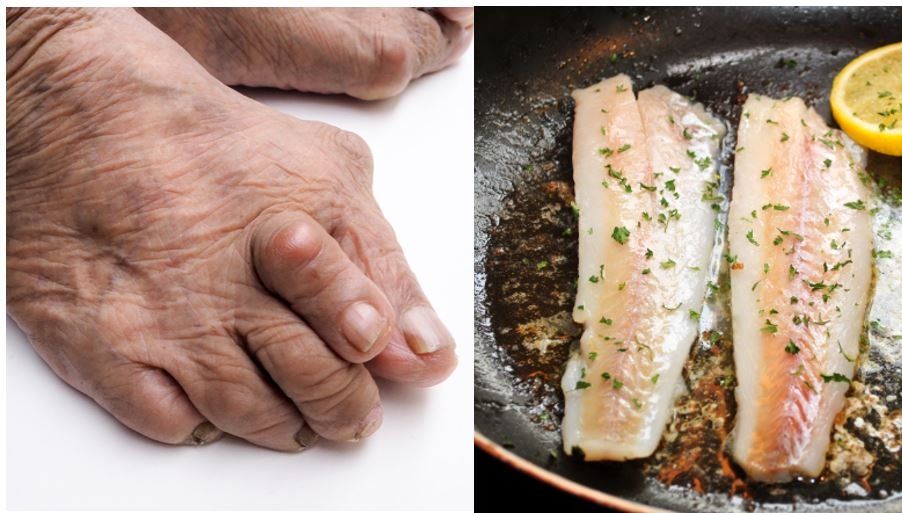Fatty Acids in Food Superior to Supplements
When it comes to reducing the risk of gout flares, dietary sources of omega-3 polyunsaturated fatty acids may be superior to supplements, shows a new study.
(©AdobeStock_Bill); (©Penton,Shutterstock)

When it comes to reducing the risk of gout flares, dietary sources of omega-3 polyunsaturated fatty acids may be superior to supplements, shows a new study published in Arthritis and Rheumatology.
In clinical trials, omega−3 fatty acids supplementation have shown benefits in conditions such as rheumatoid arthritis and psoriatic arthritis, but not in gout because purines in fish are associated with increasing the risk of flares. However, since diets rich in omega−3 fatty acids have demonstrated reductions in inflammation in the gut microbiome, investigators from Boston and San Diego decided to explore this as a potential mechanism to reduce gout attacks.
The study captured data from 724 patients over the course of nine years from the Boston University Online Gout Study. The patients experienced 1,434 gout attacks in one year alone and of those who had attacks, 19 percent said they consumed omega−3 fatty acids through diet and 4.6 percent said they consumed fatty acids through supplements which were followed by a gout flare 48 hours later.
Patients who ate one serving of fishâtrout, mackerel, herring, salmon, anchovies, sardines or herringâexperienced a 33 percent risk reduction.
But supplements (taken as fish oil, cod liver oil, or n-3 fatty acid supplements) were not associated with a significant reduction in gout attacks.
In all cases, statistical adjustments were made for use of diuretics and gout-related therapies, and intake of alcohol and purine other than the fatty fish reported. The study was limited primarily by inconsistent measurements of dietary and sometimes supplemental intake of fatty acids.
The authors concluded that despite purines in fatty fish, dietary intake is a superior, although “not an ideal” source of omega-3 fatty acids consumption that may reduce the risk of gout flares. They cited the need for clinical trials to investigate appropriate prophylactic anti-inflammatory doses of fatty acids to control gout flares.
REFERENCE
Zhang M, Zhang Y, Terkeltaub R, Chen C, Neogi T. "Effect of Dietary and Supplemental Omega-3 Polyunsaturated Fatty Acids on Risk of Recurrent Gout Flares." Arthritis Rheumatol. 2019 Mar 25. doi: 10.1002/art.40896. [Epub ahead of print]